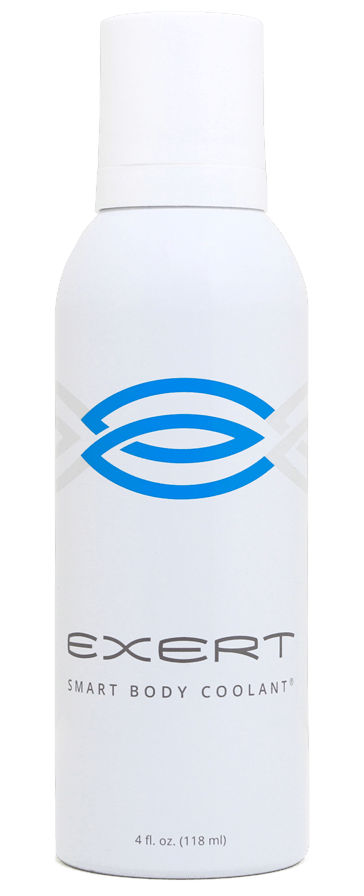Friday Folly: He Said. She Said.
Now that we’ve got some guys sharing their side of the midlife equation, it’s time to focus on some communication between the sexes. I’ll be putting Bob LeDrew and Danny Brown and possibly a few more good men to the task in the coming weeks. In the interim? Let’s not bite of the heads of those who feed us!
Cheers for a Friday!
Read MoreAging parents, aging us

Do different generations stay different? Do we replicate the patterns of our parents, or do we make different choices?
Like many people my age, I have aging parents. In my case, that’s a mom approaching her 90s with some medical challenges and the difficult adjustment of living alone for the first time in her adult life. It’s a struggle, and I think it has forced her and her two sons to face up to some uncomfortable truths over the last few years, particularly since my dad died in the summer of 2012.
One of those: how I will confront the inevitabilities of old age (if I am fortunate enough to get there). For my parents’ generation, it was common for parents to be taken care of by one or more of their children, either in the family home or by moving into a child’s home. There was (is?) a stigma about nursing homes and retirement homes. My mother has chosen to stick it out as long as is possible in her home, the home she was born in. But unlike her parents, she doesn’t have a child who will “take care of her.” I live a 90-minute flight away, my brother is six hours away by car. Thanks to my father’s service in the Second World War, she receives a number of services that have allowed her to stay in her house — the house her grandfather bought and had moved onto the property before the Great Depression — despite the encroachments of age on her body.
For people in my generation, the rules are a bit different. I have no children to rely on. I expect that any support that my partner or I will need as we age won’t be provided by family members, but by paying people from our retirement savings and investments. While I love our house, I think that when the time comes for us to retire I’ll be able to sell it and leave with no great emotional wrench; including our house, I’ve lived in about seven different places in my adult life, and I think I’ll be able to move again.
But things have been different for my generation for a while. Here I am, typing this in a pair of jeans and a t-shirt with a graphic representation of Stephen King’s “Dark Tower” series. I never saw my dad with a pair jeans (what he would call dungarees) on or a t-shirt in my lifetime. My partner doesn’t wear housecoats like my mom does, or consider the maintenance of an immaculate home a key goal, as her mom and mine do. She works outside the home, while my mom gave up her job as a nurse in ’53, when she married, and never collected another paycheque.
We are — or at least I think we seem — “younger” than our parents at the same age. We go to concerts by loud bands, we dress differently, we participate in different recreational and sporting activities, we expect that our lives will be characterized by being and acting young for a long, long time. Thinking of Shakespeare’s seven ages, we’re unwilling to enter the fifth age, of justice and solemnity. We want to be lovers and soldiers forever.
So when we age, will we really be different from our parents? Will our expectations be different; will we make different choices? Or am I flattering myself by thinking that I’ll make other choices, better choices?
It’s easy to tell yourself that you know better than the “old folks.” But those better decisions and more logical choices are much easier to make in the world of the distant future than in the world of the cold present.
It seems to me that the real challenge for us all is to strike the constantly shifting balance between independence and dependence, between insulating our elders from danger and allowing them to live as they choose, between being determined and being bullheaded, between giving in and denying reality, between taking responsibility for our health and accepting support when offered. There’s no magic formula, no easy answer.
(photo: cc-licenced by Flickr user Lars Ploughmann)
Read MoreJust an application a day…
Keeps the flashes at bay???
When the folks at Exert contacted me on Twitter about their Smart Body Coolant, I wanted to believe, I truly did. However, what I’ve found after a week’s use is that the product simply does not live up to its claims, at least, not for me.
Exert’s Smart Body Coolant is a once-daily body spray composed of phase change and high thermal conductivity materials. Theoretically, it promises to draw heat away from the body much like a wicking fabric, reducing temperature by as much as 2 to 6 degrees. And there’s no need for additional application after a flash; it supposedly ‘recharges’ once the skin drops to optimal temperature.
Admittedly, I have been experiencing lots of undesired heat of late, both during the night and while at the gym and so, another alternative to HRT certainly appeals. But, Exert did nothing for me. Further intrigued by its lack of effectiveness, I delved deeper into its ingredients. Here’s what I learned:
- A phase-change material (PCM) is a substance with a high heat fusion that absorbs or releases energy or heat, when the material changes from solid to liquid. So, when you start sweating, it should be working to release the heat.
- Thermal conductivity refers to how well certain materials transfer heat
- Together, these should equate to cooling.
Except, they don’t.
Look, Exert is well priced and should last up to six weeks with daily application. The application part of this equation lives up to its promises: nongreasy, unscented and non-staining. And, while I remain skeptical about its effectiveness, others’ testimonials are not quite so negative so clearly, there is either a placebo effect at play or it’s working for some. My advice? I don’t believe the hype but at the same time, it’s always worth trying, right? Kudos to the company for a unique idea but spraying flashes away is not in my future. Is it in yours’?
[Disclosure – I was not paid for this review but I did receive a can of Exert care of the company’s representatives.]
Read MoreRB-X – Does real beauty start with the letter ‘g?’
Dove’s evolving Real Beauty may have done women everywhere a solid by highlighting real skin and real curves. But it appears that the manufacturer is beginning to believe its own hype with the latest iteration: “Is Beauty a State of Mind?”
Does real beauty start with the letter ‘G’ as in, ‘gullible?’
The Dove State of Mind campaign highlights several women of varying ages and ethnicities who are recruited to try the RB-X ‘Beauty Patch.’ For a week, they are asked to apply the patch and keep a daily diary. And imagine this: in simply one week, these Doubting Debbies have blossomed into Boastful Beauties. The rub? There’s nothing in the patch; it’s just a patch. And when they women learn that the patch is a placebo, they each have an epiphany! They were beautiful ‘all along,;’ the patch simply boosted their self-confidence. Oopsie! How could they not have known (blush, giggle, yikes).
Wow, colour me dumbfounded.
Ladies, indeed, it is time to take a step back and redefine the meaning of beauty. While it may be a state of mind (at times), it is certainly not a Dove State.
Read More
Cosmetic surgery for guys?!
Last week, I talked about how men’s self-perception changes over time, as they age. After the column, I was amused and touched to have one friend contact me and ask if I was okay. The answer, for the record, was and is yes.
I’m pretty comfortable with my physical self. That doesn’t mean I wasn’t ecstatic to be on my bike last Sunday for my first outside ride of the season, or looking forward to dropping a few pounds from around the waist as I ride more and more frequently.
I am in not even in the ballpark where I might consider getting a surgical procedure done to enhance my looks. But apparently, more and more of my counterparts are in that ballpark. According to a Business Insider article, men are the new growth area for cosmetic surgery. The American Society for Aesthetic Plastic Surgery reported that cosmetic procedures carried out on men more than doubled between 1997 and 2012.
According to this New York cosmetic surgeon, there are four types of guys who get cosmetic surgery: the “male model”, the “bodybuilder”, the “CEO”, and the “athletic dad.” I don’t fit any of those, so perhaps that’s why cosmetic surgery is not on my radar. He also associates certain types of procedures with each of those types.
So what do guys get done? The top five procedures (in the US at least) are: liposuction, rhinoplasty, eyelid surgery, breast reduction to treat enlarged male breast, and ear shaping. While you might associate cosmetic surgery with hair replacement, that procedure on its own is almost as big as all cosmetic surgery in terms of numbers of procedures.
I don’t want to judge. If someone wants to get one or more of these procedures, that’s up to them. For me, I think of it like spending megabucks on hotsy-totsy carbon wheels for my bike. Yes, I might save up to a pound. But of course, if I ate better and exercised more, I could probably lose way MORE than a pound.
Like most choices we face, cosmetic surgery has benefits, risks, costs and opportunities attached to it. For me, I can’t make the calculation work out in favour. But where do you draw the line? Are contacts a cosmetic procedure? What about manscaping? What about men who wear cosmetics?
What decisions have you made? How far are you willing to go to keep or enhance your looks? Tell me about it in the comments.
Read More







